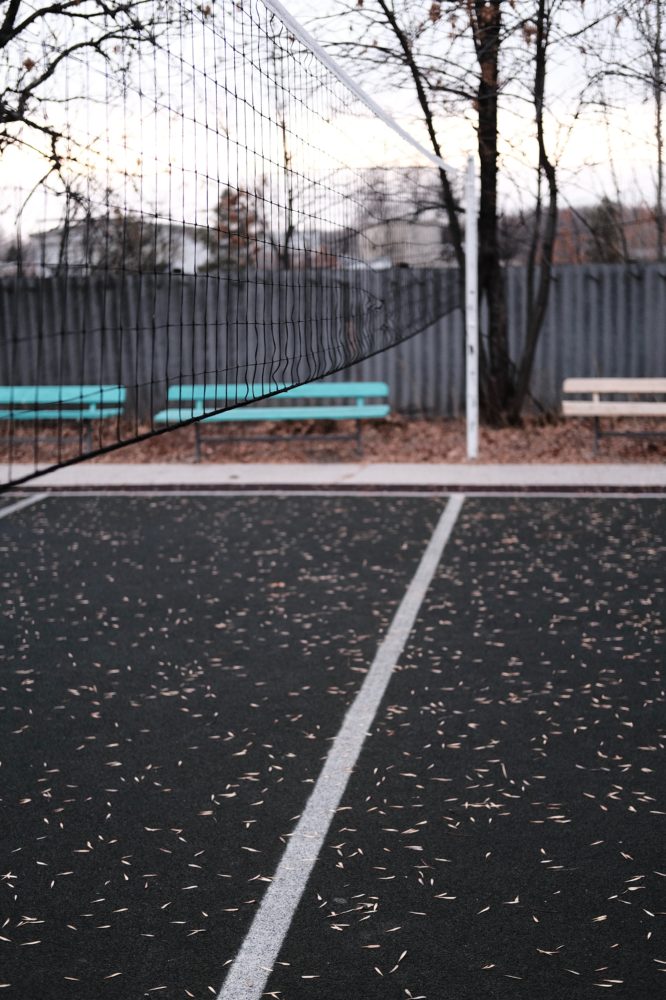Nine p.m., Gwyn and I drive from her second Park & Rec volleyball game through the night toward home and she’s bouncing with energy. I’ve just told her how proud I am. “I know!” she enthuses. “With tennis, it took me years to be mediocre. Volleyball’s much easier. I’m already mediocre!”
Thus my pride. Out on the volleyball court, surrounded by buff, diving high school girls and muscular, leaping boys, Gwyn flinched every time the ball flew near her. Twice she “literally” (her word, not mine) cowered. She also rescued a ball or two; a few of her serves made it over the net. As I watched from the bleachers, secretly (and only briefly) swamped with shame on her behalf, nightmarish memories of my own gym class humiliations rushed in—volleyballs smacking my face; the opposing team’s servers targeting me, repeatedly, as the weak link; dreading that moment in the rotation when I’d stand, shaking in the back right corner, ball in hand, all eyes on me. I hated volleyball with a fuming, mortified abhorrence. I was decidedly worse than mediocre. I was bad.
Only today, watching Gwyn joyfully progress from bad to mediocre, do I grieve what I missed. Thus far Gwyn has been told by parents, coaches, and teachers that what matters in sports is learning, growing, being a good teammate, and having fun. I too was told this but nobody meant it; what really mattered, everyone knew, was skill and winning. In adulthood I’ve willfully defied the messages of my upbringing by reveling in my ineptitude, making a fool of myself on tennis courts and at the basketball hoop, refusing to show Gwyn a modicum of insecurity and, it turns out, enjoying myself. With the help of Gwyn’s wonderful coaches, who welcome newcomers, build team spirit, and patiently offer instruction, and my partner, who enters physical activity with ease, I’ve broken a family pattern, thank God, and raised Gwyn in a can-do environment. When she messes up on the court, she doesn’t apologize. Her teammates clap for her effort. Afterward, her smile is genuine.
What I missed in sports was the unadulterated joy of being a beginner. I’m proud of Gwyn because, by being mediocre despite watching eyes of the ref, the crowd on the bleachers, and the cut-throat opposing team, she allowed herself become more than she was. May we all have such courage.
–Elizabeth Jarrett Andrew
